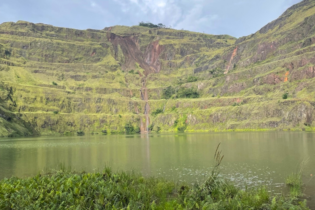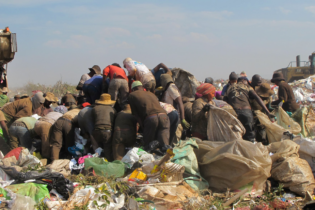Piet Steyn, managing director of Oilkol, remembers a time in the late 1950s and 60s when people used to drag trolleys behind them through the streets collecting waste. Over 60 years later, has all that much changed?
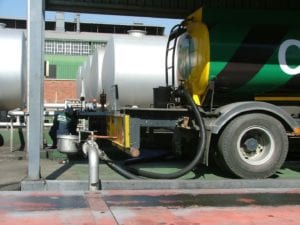 These people, who were mostly unemployed, collected glass bottles and called ‘bottelbekke’. Our parents warned us against them and said that they abduct children. To an uninformed child, these people seemed like boogeymen of whom we were scared. Thankfully, as time moved on and the South African economy grew, those poor people disappeared,” he notes. Half a century later, the reality is that those poor people did not disappear. They are still here and, instead of refundable-deposit glass bottles, their little trolleys are filled with cardboard and plastic. These modern-day ‘bottelbekke’ – or, rather, waste pickers – form part of the waste industry’s informal sector.
“This all sounds quite good for South Africa’s growth strategy, as the waste industry was identified to be a major job creator. However, is it really? Are these jobs sustainable?” questions Steyn. The Polokwane Declaration of the Department of Environmental Affairs set a goal of ‘Zero Waste by 2022’.
To achieve this, Steyn believes that our attitude towards waste needs to change. “I know this initiative is largely focused on diverting waste away from landfills, minimising the disposal of hazardous wastes and beneficiating others; however, growing South Africa through the waste industry while practising responsible waste management is a contradiction. It is the creation of a false economy because zero waste would mean that there is no future for the informal waste sector,” Steyn explains.
These people, who were mostly unemployed, collected glass bottles and called ‘bottelbekke’. Our parents warned us against them and said that they abduct children. To an uninformed child, these people seemed like boogeymen of whom we were scared. Thankfully, as time moved on and the South African economy grew, those poor people disappeared,” he notes. Half a century later, the reality is that those poor people did not disappear. They are still here and, instead of refundable-deposit glass bottles, their little trolleys are filled with cardboard and plastic. These modern-day ‘bottelbekke’ – or, rather, waste pickers – form part of the waste industry’s informal sector.
“This all sounds quite good for South Africa’s growth strategy, as the waste industry was identified to be a major job creator. However, is it really? Are these jobs sustainable?” questions Steyn. The Polokwane Declaration of the Department of Environmental Affairs set a goal of ‘Zero Waste by 2022’.
To achieve this, Steyn believes that our attitude towards waste needs to change. “I know this initiative is largely focused on diverting waste away from landfills, minimising the disposal of hazardous wastes and beneficiating others; however, growing South Africa through the waste industry while practising responsible waste management is a contradiction. It is the creation of a false economy because zero waste would mean that there is no future for the informal waste sector,” Steyn explains.
Getting to the root of the problem
Standard waste management practices are built on the waste hierarchy, which starts with reduction. Steyn believes that the answer to the waste problem lies here, at the start. “We should endeavour to eliminate the creation of waste, but we should also be mindful that this would limit the opportunities for the informal waste collectors who are already desperate people eking out an existence from waste,” he notes. Steyn believes that we should not be able to sleep peacefully while desperate people rummage through the waste we create. “Seeing these people reminds me of the shocking pictures of children dragging mining carts behind them in dangerous coal mine tunnels in the 1800s. We are looking to the mining of waste to create much-needed employment in South Africa,” he adds. In addition, the demand for waste as feedstock for manufacturing is governed by simple economic principles of supply and demand. Should the treatment and processing cost of feedstock be too high and cheaper by-products from other industries be available, the by-product will be used as feedstock. If not, the by-product becomes waste and – in the larger scheme of waste management – we are back to square one.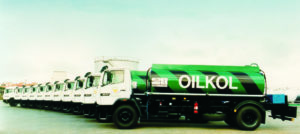 As a case in point, one can consider the petrochemical and plastic industries. By-products from crude oil refining and natural gas processing end up as feedstock for the manufacturing of various forms of plastic. Steyn notes that the fate of plastic in the environment has been the subject of much discussion with bans being implemented, among other measures. Recently, a large petroleum company stated that a ban on plastics would result in a dent in the demand for oil supply. “From this, one can only gather that recycling plastics may lead to decreased profits in the petroleum industry and subsequent job losses, and then another monster is created.
As a case in point, one can consider the petrochemical and plastic industries. By-products from crude oil refining and natural gas processing end up as feedstock for the manufacturing of various forms of plastic. Steyn notes that the fate of plastic in the environment has been the subject of much discussion with bans being implemented, among other measures. Recently, a large petroleum company stated that a ban on plastics would result in a dent in the demand for oil supply. “From this, one can only gather that recycling plastics may lead to decreased profits in the petroleum industry and subsequent job losses, and then another monster is created.“Why would I be contemplating this ‘negative’ outlook on the waste industry? Maybe it is because seeing the struggling informal waste collectors reminds me of our own search for purpose, as Oilkol, and the people who shared in defining our purpose,” Steyn says.
Overcoming bottom line greed
“I have been involved with Oilkol for the past 23 years. How time flies and how things have changed! I started in a company that was involvedin the dirtiest business I had ever seen. “We cleaned up the used oil business and built Oilkol into a world-class ISO 14001:2015 certified environmental enterprise. We have always believed that our biggest investment is our people and it is indeed these people that built this company,” Steyn asserts.
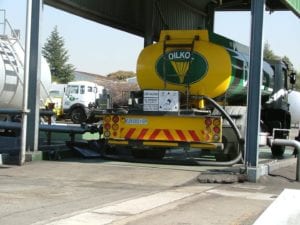 During a Road Freight Association conference in 2001, the transport industry was warned that by 2006 it would have lost a large component of it’s labour force. While Steyn says he was sceptical about this projection at the time, it turned out to indeed be the case.
“In my 23 years at Oilkol, I have buried 36 friends who were also my colleagues. Our staff turnover is not high and people do not leave the company, except for those we lose due to their time on our planet running out. To those who have passed, rest assured, your labour during our mission made a difference, and in our own small way we have chosen to honour your outstanding commitment with a memorial plaque,” says Steyn.
“To a child, a monster may be someone whose shoes they did not have to walk in; to others, it is industry; to the people heading these industries, it may be government or bureaucracy. But the real monster we keep on feeding is greed,” he insists. Steyn believes it is imperative that a strong,
During a Road Freight Association conference in 2001, the transport industry was warned that by 2006 it would have lost a large component of it’s labour force. While Steyn says he was sceptical about this projection at the time, it turned out to indeed be the case.
“In my 23 years at Oilkol, I have buried 36 friends who were also my colleagues. Our staff turnover is not high and people do not leave the company, except for those we lose due to their time on our planet running out. To those who have passed, rest assured, your labour during our mission made a difference, and in our own small way we have chosen to honour your outstanding commitment with a memorial plaque,” says Steyn.
“To a child, a monster may be someone whose shoes they did not have to walk in; to others, it is industry; to the people heading these industries, it may be government or bureaucracy. But the real monster we keep on feeding is greed,” he insists. Steyn believes it is imperative that a strong,sustainable economy be created without raising false hopes and economies. “As a young farmer in 1933 during the depression, my grandfather had to go to work on the roadbuilding teams for 25 cents a day to keep his family going, as the drought made farming impossible. Many of his generation had to do this at the time, and made one of the biggest social investments in our country and in our time. They built the roads later generations benefitted from. “Maybe what we need now to create positive jobs is to have young, unemployed South Africans build roads, railways, dams or water pipelines to the drought-stricken areas while receiving skills and training at the same time. While bottom line greed is debilitating, unemployment should be the
scariest monster of all,” he points out. “At Oilkol, we have been working for the environment for the past 47 years. Our objective is to become one of the few 100-year-old companies in South Africa and certainly not another monster that needs to be fed,” he concludes





